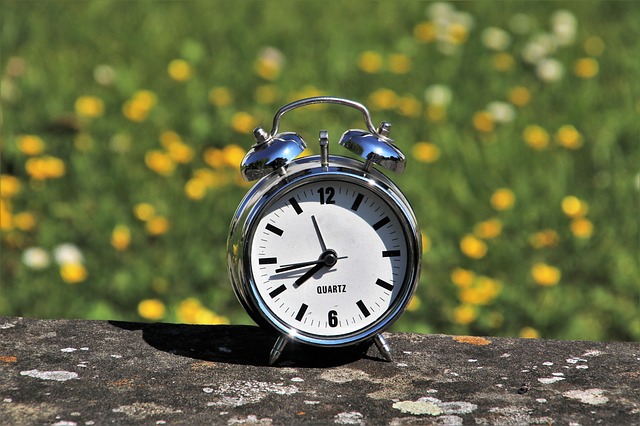
Every spring when we switch to Daylight Saving Time (DST) there is always a debate if we should leave it alone. Not only do we lose an hour, but our health can suffer in various ways.
Our Circadian Rhythm
Read More »In the part of our brain called the hypothalamus, we have neurons called the suprachiasmatic nucleus that govern our internal clock using these outside factors. For example, we have receptors in our eyes that detect sunlight. When there is no sunlight, our brain increases melatonin, which causes us to be sleepy.
Disrupts Our Biological Clock
When we change to DST, we become out of sync with the daylight and darkness cycles of the sun, with standard time being closer to our natural relationship with daytime and nighttime.
We can experience negative health effects because our body is forced to do things that are not in step with our natural biorhythms or biological clock. According to Professor Ann Malow at Vanderbilt University, this isn’t for a couple of days, it causes a misalignment of our biological clock for seven months.
Your biological clock might not agree with what the clock on the wall says it is. Springing forward can cause us to feel inefficient and drained for more than several weeks following the change.
Increased Heart Attack Risk
In a 2020 position paper, The American Academy of Medicine reviewed six studies that found there is a 24% increased risk of having a heart attack on the day of the change and a 5% to 15% increase in heart attack risk during the days following the change to DST.
In contrast, there is a 21% decrease in the risk of having a heart attack during the days following the change back in the fall. Researchers aren’t sure why this occurs, though it is known that being overly tired can contribute to heart attacks.
More Accidents and Suicides
Not only does springing forward bring an increased risk of heart attacks, but also an increase in car accidents, emergency room admissions, and suicides. One reason for the increased emergency room visits was because of arterial fibrillation or irregular heartbeat. And one cause of arterial fibrillation is being overly tired.
An Australian study found that suicides increased in males following the change to DST when compared to switching back an hour in the fall. Other studies found that the disruption to sleep patterns caused a higher rate of suicide in those that suffer from bipolar disorder after changing to DST.
Workplace Injuries Increase
A study published in the Journal of Applied Psychology found that workers were more prone to injuries and the injuries that occurred were more serious on the Monday following the change to DST. There were no increases in the frequency or severity of injuries during the fall when we gain that hour back.
Other data found that the switch to DST caused workers to get 40 minutes less sleep, a 5.7% increase in injuries at work, and a 68% increase in workdays lost.
How Losing an Hour Affects Teens
It is not known at what age switching to DST begins to affect people, but it does affect high school students. When controlling for factors such as socioeconomic status, studies found that students did worse on their SAT tests following the shift to DST.
Less Focus
Whether you’re a student in high school or an employee sitting at your desk, springing forward can cause a loss of focus on the task at hand. It was found that cyberloafing increased right after moving the clock ahead one hour. Cyberloafing is the phrase that is used when employees pretend to be working but are just goofing off on the internet.
What Can We Do to Stay Healthy
Since most of us don’t have a choice but to spring forward, there are some things we can do to help ourselves. It appears the main problem is being overtired, so it makes sense that we try to get to bed a little earlier. Eat lighter meals, this helps with digestion and with getting a better night’s rest. Mentally prepare yourself knowing that you’ll be waking up an hour earlier than your body normally thinks it is, and it will be darker than usual.





